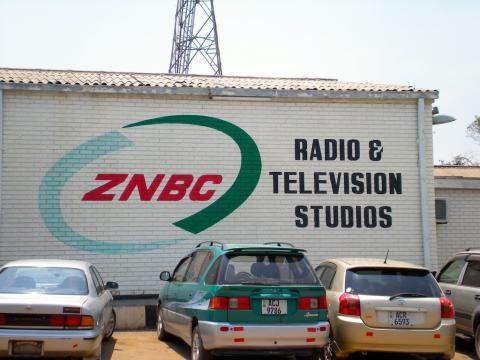Press freedom in Zambia still remains a far-fetched dream
 Submitted by jbimokola on
Submitted by jbimokola on

FULL STORY on Press freedom in Zambia being a far-fetched dream- https://themirror256.wordpress.com/2018/06/23/press-freedom-in-zambia-still-remains-a-far-fetched-dream/
Zambian journalists are among media practitioners who have to be careful while doing their work if they are to see the next day still in journalism.
Recent reports on media freedom in Zambia show that the media remained tight lipped with the quest to protect their jobs and operation licenses. Despite being told by President Edgar Lungu that the media will remain free under his leadership, however the Freedom of expression and of the media is deteriorating in the Nation.
The continued trend of media suppression from the ruling party has forced the media to practice self-censorship in order to avoid closure or suspension of their operation licenses.
According to research report, State of the Media in Zambia Q2 2017 there are indications of high levels of polarization especially as it pertains to the coverage and reporting on the various political parties.
The Judiciary banned the media from taking photographs in courts and using explicit language in their reportage. The judiciary said it was concerned that some journalists from different sections of the media and public had been taking photographs and videos of proceedings inside the court rooms.
Many media practitioners faced a flurry of legal suits and counter suits that were clearly adding to the many pressures that they have already been facing since 2016. One unique case was one where the Daily Nation Newspaper threatened to sue The Mast Newspaper.
The Post newspaper, a forerunner to the Weekly Post, was one of the first independent newspapers and continued to champion democracy and good governance by holding government accountable. Incidentally, the harassment of The Post newspaper started way back but the previous leaders between 1990 and 2008 – Kaunda, Chiluba and Levy Mwanawasa were tolerant of it. The suffocation and closure of The Post newspaper which manifested in 2016 during the reign of incumbent Edgar Lungu was because the tabloid showed open support for Sata from presidential nominations and continued critiquing and checking of powers of the ruling government.
The government of Zambia says there is free state-owned media like Times of Zambia, Zambia daily, and Zambia National Broadcasting Corporation (ZNBC) but in actual sense there’s government editorial control and reporting along pro-government lines.
Journalists reportedly practice self-censorship since most government newspaper do have prepublication review.
Freedom house which publishes annual country reports on press freedom status ranked Zambia’s press “Not free” in 2016.
Other laws that have affected media freedom in Zambia since independence include: The defamation Act of 1964 which restricts freedom of expression and criminalize defamation.
The state security act of 1969 which also limits free speech and media freedom and also restricts government criticism.
The telecommunication Act of 1994, the ZNBC Amendment Act of 2002, the independent broadcasting Authority Act of 2002 among other laws.
What is evident though, is that the hope for a freer media and freedom of expression in Zambia is ever getting far-fetched going by these events.
- Log in to post comments
- 1293 reads
